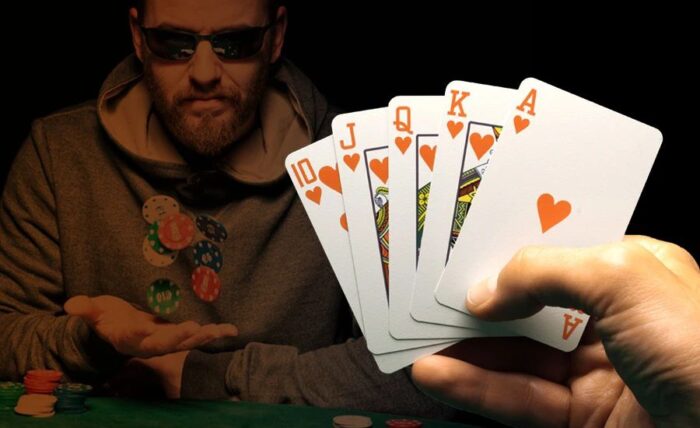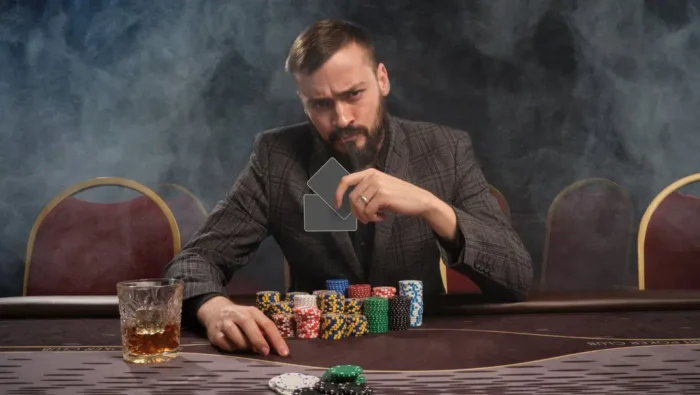
In the fascinating world of poker, the blend of strategy and the subtle art of bluffing are not just skills, but essential weapons in a player’s arsenal. These elements transform poker from a mere card game into a deeply strategic and psychological battle.
The essence of poker lies in outmaneuvering opponents, not just by the cards in hand but also through mental prowess. This guide aims to demystify these complex aspects, turning novices into adept players.
The Popularity of Indian Teen Patti in Online Betting Apps
While cricket betting takes center stage in India, games like Indian teen patti, a traditional Indian card game akin to poker, have also found a significant place in the online betting world.
These apps have successfully integrated teen patti, catering to the cultural preferences of Indian bettors. This integration not only diversifies the betting options available but also adds a cultural touchstone, making these apps more relatable and appealing to the Indian audience.
The digital version of teen patti in these apps maintains the essence of the traditional game while offering the convenience and excitement of online betting.
The Fundamentals of Poker Strategies

Starting Hand Selection
Every Texas Hold’em hand begins with a critical decision: should I play these cards? The strength of starting hands varies, and factors like table position and opponents’ actions significantly influence this decision.
It’s not just about waiting for pocket aces; understanding what makes a hand playable is a skill to develop. For example, the value of certain hands increases in late positions due to the advantage of acting after others.
Positional Awareness
Your position in the betting sequence dramatically impacts your strategy. Being ‘in position’ lets you act after your opponents, providing a strategic advantage. Conversely, ‘out of position’ play lacks this informational edge. Recognizing and adapting to your position is fundamental to poker strategy, as it affects the range of hands you can profitably play.
Bankroll Management
A crucial but often overlooked aspect of poker is managing your bankroll. Setting and adhering to limits ensures responsible play and longevity in the game. Effective bankroll management helps absorb the natural fluctuations of poker, keeping you in the game through its highs and lows.
Advanced Poker Strategies

Pot Odds and Expected Value
Understanding pot odds—the ratio of the pot size to the cost of a contemplated call—is crucial. It helps determine if a call is expected to be profitable over time. Similarly, incorporating Expected Value (EV) into your decisions aids in making choices that yield long-term profitability. Balancing these concepts is key to an advanced poker strategy.
Reading Opponents
Poker is as much about reading people as it is about playing cards. Identifying player types and their tendencies allows you to exploit their weaknesses and adjust your play accordingly. For instance, aggressive players might be more prone to bluffing, while passive players might fold under pressure.
Table Image
Your table image, the perception other players have of your playing style, is an essential part of strategy. Managing this image effectively can influence how opponents react to your moves. A tight image, for example, might make your bluffs more successful, as others perceive you as conservative and likely holding strong hands. Conversely, a loose image might lead opponents to call your bets more frequently, requiring adjustments in your play.
The Art of Bluffing

Understanding Bluffing
Bluffing is a sophisticated tactic in poker, involving much more than simple deception. It’s about reading the game and understanding the psychology of your opponents. Successful bluffing can compel opponents to fold superior hands. However, it requires a keen sense of timing and situation awareness.
Bluffing Techniques
Effective bluffing involves a balance between actual hand strength and perceived strength. The bluff-to-value ratio, which measures the proportion of bluffs to value bets, is crucial in this regard. This ratio should adapt to various game situations, including table dynamics and player tendencies.
Spotting Bluffs and Bluff-Catching
Recognizing when opponents bluff and effectively calling them out (bluff-catching) is a nuanced skill. It involves understanding their betting patterns and psychological cues. However, caution is necessary; misjudging a situation can be costly.
Putting It All Together

Developing Your Poker Strategy
Combining fundamental and advanced strategies is crucial in developing a robust poker approach. This involves creating a flexible, adaptable game plan and continuously learning and improving based on experience and study.
Practice and Game Selection
Choosing the right games for your skill level and bankroll is critical. Consistent practice and experience are essential for honing skills and making strategic improvements.
FAQ
How can beginners effectively practice poker strategies outside of live games?
Beginners can use online poker simulators and software to practice different strategies. Analyzing past games and hands, either their own or those of professional players, also helps in understanding different scenarios and decisions.
Is it necessary to be good at math to excel in poker?
While a basic understanding of probabilities and odds is beneficial, being a math genius is not necessary. Intuition, experience, and psychological insight are equally important.
How often should I change my playing style to avoid being predictable?
It’s less about frequency and more about adapting to the game’s dynamics and your opponents’ actions. However, periodically mixing up your play can be effective in keeping opponents off balance.
Can you rely solely on bluffing to win in poker?
No, relying solely on bluffing is not a sustainable strategy. Balanced play, which includes solid hand selection, understanding of odds, and reading opponents, is essential for long-term success in poker.
Conclusion
Mastering poker strategies and bluffing techniques is a journey that requires time, practice, and dedication. While the path to becoming a skilled player is challenging, it is also rewarding. Remember, every hand offers a new learning opportunity, and continual growth and adaptation are key to success in poker.








